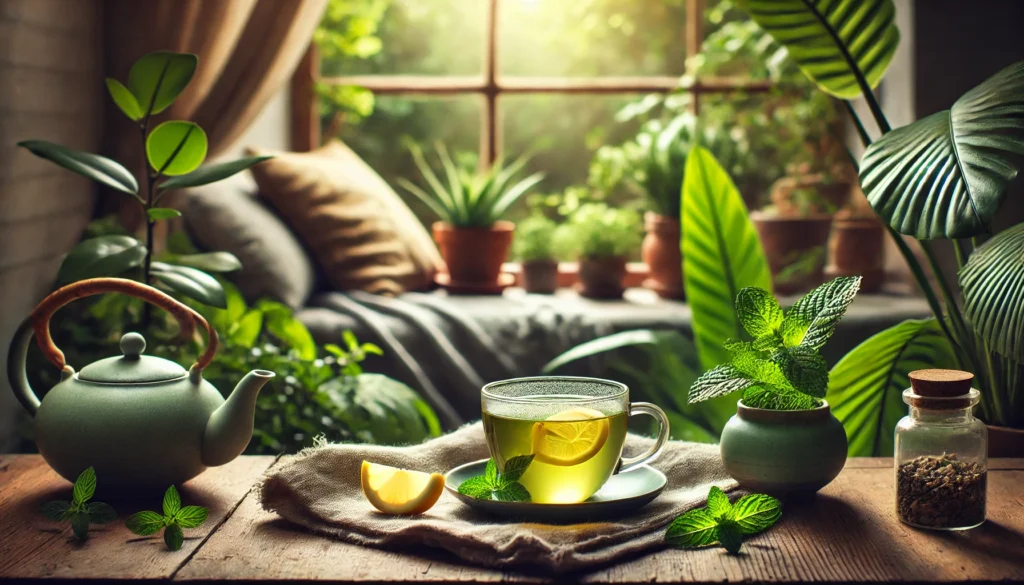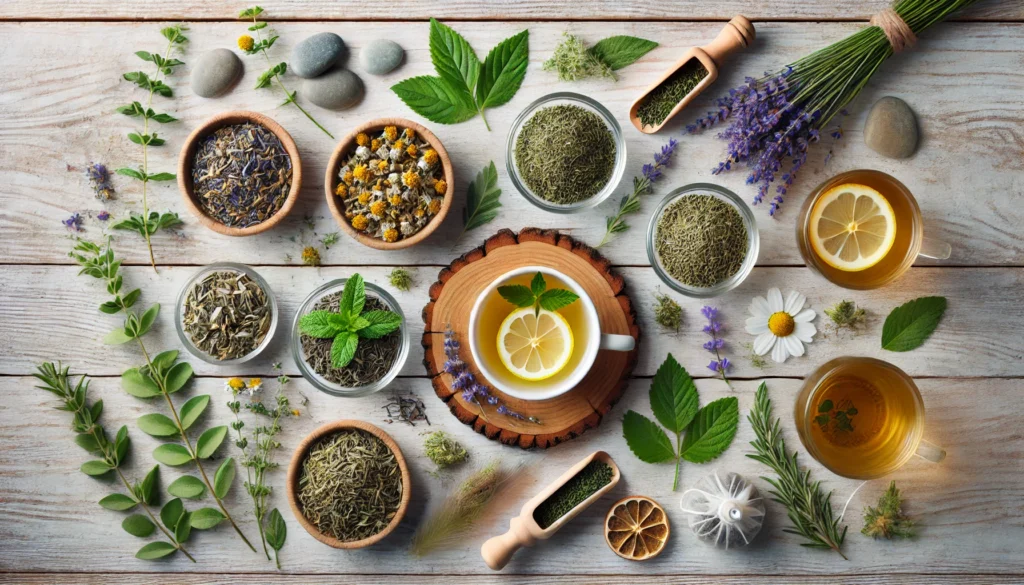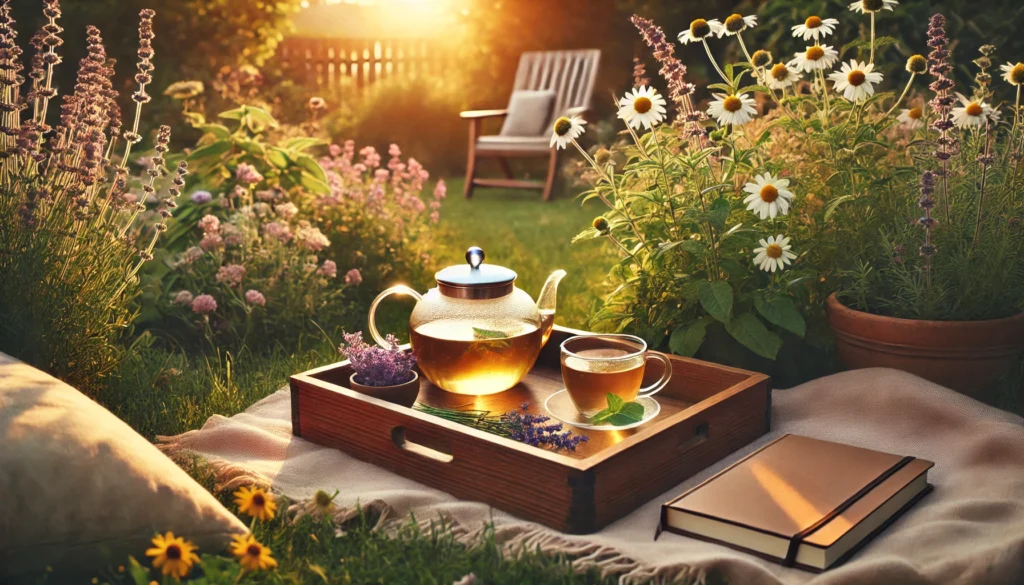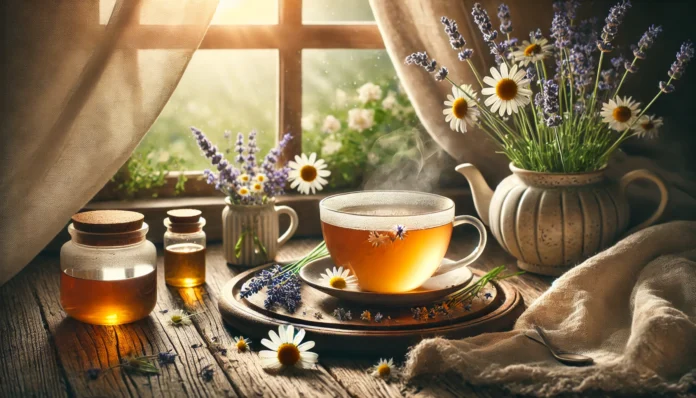In an increasingly fast-paced world, the quest for peace of mind and emotional equilibrium often drives people toward holistic remedies. Among these, tea has remained a cherished companion for centuries, offering warmth, ritual, and a variety of botanical properties that support mental wellness. As mental health awareness continues to grow, more individuals are exploring the calming properties of specific teas to manage their stress and anxiety. Whether you’re coping with everyday tension, searching for natural ways to ease anxiety disorder symptoms, or simply want to enhance relaxation before bedtime, there is growing scientific interest in understanding which teas offer genuine therapeutic potential.
You may also like: Proven Relaxation Techniques for Stress and Anxiety: Evidence-Based Strategies to Calm Your Mind and Body
Many are now asking, “What tea is good for anxiety?” or wondering if their favorite cup can provide more than just momentary comfort. As emerging research continues to highlight the potential synergy between herbal compounds and the body’s stress-response systems, it’s important to distinguish anecdotal recommendations from evidence-based practices. In this article, we will explore the best tea for stress and anxiety through a comprehensive lens that incorporates clinical evidence, traditional use, and practical advice. The goal is not only to identify the most effective teas but also to understand how they interact with our neurochemistry and contribute to long-term emotional well-being.
Understanding Stress, Anxiety, and the Body’s Response
Before delving into specific teas that help with anxiety, it’s crucial to understand what stress and anxiety are from both a physiological and psychological standpoint. Stress is the body’s acute response to any demand or threat, triggering the release of hormones like cortisol and adrenaline that prime the body for immediate action. While beneficial in short bursts, chronic stress can lead to a dysregulated hypothalamic-pituitary-adrenal (HPA) axis, increasing susceptibility to mood disorders, inflammation, and physical illness.
Anxiety, though closely related to stress, differs in that it is often characterized by persistent, excessive worry that occurs even in the absence of a clear stressor. When anxiety becomes overwhelming or unmanageable, it may evolve into an anxiety disorder, which can include generalized anxiety disorder (GAD), panic disorder, and social anxiety, among others. These disorders can significantly impact daily functioning, relationships, and overall quality of life.
Teas that help manage anxiety typically work through one or more mechanisms: modulation of neurotransmitters like GABA and serotonin, attenuation of the stress response via the HPA axis, reduction of oxidative stress, and promotion of parasympathetic nervous system dominance, which induces a state of calm. Understanding these underlying mechanisms helps us appreciate how something as simple as a cup of tea can yield profound therapeutic effects.
Chamomile Tea: A Gold Standard in Calming Remedies
Among all the options available, chamomile tea has consistently emerged as one of the best teas for stress and anxiety. Its use dates back to ancient Egyptian, Greek, and Roman civilizations, where it was employed to calm nerves and promote sleep. In modern times, chamomile remains a top choice for those wondering, “Does chamomile tea help with anxiety?”
Research has increasingly supported chamomile’s anxiolytic effects. A pivotal study published in Phytomedicine demonstrated that long-term use of chamomile extract significantly reduced symptoms of generalized anxiety disorder, with minimal side effects. One of the primary mechanisms behind chamomile’s effectiveness is its high concentration of apigenin, a flavonoid that binds to benzodiazepine receptors in the brain, much like conventional anti-anxiety medications, but without the sedative drawbacks.
In clinical practice, some patients have even shared anecdotes such as “chamomile tea cured my anxiety,” although it is essential to recognize that while chamomile can substantially alleviate symptoms, it is not a replacement for clinical interventions when needed. For those managing mild to moderate symptoms or looking for a supportive remedy, chamomile tea provides a gentle, evidence-backed solution. It’s also one of the best teas for sleep and anxiety, often consumed before bedtime to enhance both relaxation and sleep quality.
Green Tea: L-Theanine and the Art of Alert Calm
Green tea offers a unique paradox: it gently stimulates the mind while promoting a sense of calm. This balance is primarily due to L-theanine, an amino acid found almost exclusively in green tea leaves. L-theanine increases alpha brain wave activity, fostering a state of relaxed alertness. This makes green tea a powerful option for those who seek to manage anxiety without compromising focus.
Numerous studies have explored L-theanine’s impact on stress and anxiety. One particularly illuminating clinical trial found that individuals who consumed L-theanine experienced significantly reduced stress responses during challenging tasks, with improved attention and mental clarity. This dual action makes green tea an ideal choice for those experiencing anxiety at work or during high-pressure situations.
When it comes to finding the best tea for anxiety disorder that doesn’t induce drowsiness, green tea is especially appealing. It allows individuals to stay mentally sharp while reducing the psychological burden of stress. It’s important, however, to choose varieties with moderate caffeine content, as excessive caffeine can exacerbate anxiety in sensitive individuals. Opting for matcha or decaffeinated green tea can offer the benefits of L-theanine without unwanted stimulation.
Peppermint Tea: Cooling the Nervous System
Peppermint tea, often relegated to digestive support, holds surprising potential as a calming tea for anxiety. Rich in menthol, peppermint acts as a natural muscle relaxant, helping to relieve physical tension often associated with anxiety. While it does not bind to the brain’s primary calming receptors like chamomile does, it exerts an indirect anxiolytic effect by soothing the gut-brain axis.
Emerging research underscores the strong connection between gut health and mental health. The enteric nervous system, often referred to as the “second brain,” plays a pivotal role in regulating mood. Peppermint tea may alleviate symptoms of anxiety by reducing gastrointestinal discomfort, thus minimizing the feedback loop between gut distress and anxious thoughts.
Its refreshing aroma also contributes to sensory relaxation. Aromatherapy studies have shown that the scent of peppermint can decrease fatigue and enhance mood, particularly when combined with breathing exercises or mindfulness practices. For individuals who experience somatic symptoms of anxiety such as nausea or stomach pain, peppermint tea serves as a supportive, non-invasive remedy.
Lemon Balm Tea: Calming Without Sedation
Lemon balm (Melissa officinalis) is a member of the mint family and has been used for centuries to ease anxiety, promote sleep, and uplift the mood. In the modern pharmacological context, lemon balm is known for its ability to modulate the GABA system, similarly to more widely known herbs like chamomile and valerian root. It interacts with GABA-A receptors, exerting a calming influence without the strong sedative effects that might impair daily functioning.
Clinical research supports its efficacy as one of the best teas for anxiety. In randomized controlled trials, lemon balm has been shown to reduce symptoms of anxiety, improve mood stability, and even enhance cognitive performance. These findings make it especially suitable for daytime use when mental alertness is still required.
One of the most promising aspects of lemon balm is its safety profile. Unlike some herbs that require careful dosing or come with contraindications, lemon balm tea is generally well-tolerated across various age groups. For those looking for teas that help with anxiety while maintaining productivity, lemon balm offers a well-balanced option that supports both mind and mood.

Passionflower Tea: Natural Sedative with Neuroprotective Properties
Passionflower (Passiflora incarnata) has earned its place among the top contenders for the best tea for anxiety disorder due to its pronounced calming effects. Traditionally used in Native American and European herbal medicine, passionflower has been extensively studied for its ability to alleviate insomnia and nervous restlessness.
Its primary mechanism of action lies in enhancing GABA activity, thus reducing neuronal excitability and fostering a tranquil mental state. Studies have shown that passionflower is particularly effective in reducing symptoms of generalized anxiety disorder, with outcomes comparable to low-dose benzodiazepines, but without the same risk of dependency or cognitive impairment.
Beyond its immediate calming effects, passionflower also exhibits neuroprotective properties, including the reduction of oxidative stress and inflammation in the brain. These attributes are particularly valuable for individuals with chronic stress or long-standing anxiety, where neuroinflammation may play a role in perpetuating symptoms. As a result, passionflower tea stands out not just as a calming agent, but as a long-term support for mental health resilience.
Valerian Root Tea: Deep Relaxation and Improved Sleep
Valerian root, often associated with sleep support, also holds considerable promise for managing anxiety. While its strong, earthy aroma may deter some, its potent effects make it one of the best teas for stress and anxiety, especially for individuals who struggle with racing thoughts or insomnia.
Valerian enhances GABA activity in the brain, promoting sedation and muscle relaxation. Unlike pharmaceutical sedatives, valerian works gradually and tends to avoid abrupt shifts in consciousness or mood. Clinical trials have noted improvements in both sleep quality and anxiety scores among participants who consumed valerian extract or tea.
For those looking for the best tea for sleep and anxiety, valerian root is a powerful contender. It is especially beneficial when anxiety manifests as sleep disturbance or nocturnal rumination. When taken an hour before bed, valerian tea can facilitate smoother transitions into sleep and reduce nighttime awakenings, contributing to a more restorative rest.
Lavender Tea: Aromatherapeutic and Anxiolytic Benefits
Lavender is perhaps best known for its aromatic properties, but its benefits extend well beyond scent. Lavender tea offers both internal and sensory support for those dealing with anxiety. Rich in linalool and linalyl acetate, lavender exerts calming effects on the central nervous system.
Ingesting lavender in tea form has been shown to reduce symptoms of anxiety, particularly in individuals with mild to moderate presentations. One of the key benefits of lavender tea is its rapid onset of action; many users report a noticeable reduction in tension within minutes of consumption. This makes it a popular choice for acute anxiety episodes or pre-sleep rituals.
Additionally, lavender supports heart rate variability, a key biomarker of stress resilience. Improved heart rate variability is associated with greater adaptability to stress and reduced risk of mood disorders. By integrating lavender tea into daily routines, individuals can harness both its biochemical and aromatherapeutic properties for holistic mental wellness.
Rooibos Tea: Antioxidant Support for Stress Reduction
Rooibos, a caffeine-free herbal tea native to South Africa, is gaining attention for its adaptogenic and anti-inflammatory effects. Unlike other calming teas that directly modulate neurotransmitters, rooibos works primarily through oxidative stress reduction and HPA axis balance. This makes it an excellent choice for chronic stress and burnout.
Studies have found that rooibos contains aspalathin and nothofagin, two powerful antioxidants that reduce cortisol levels and protect against stress-induced cellular damage. These effects are particularly beneficial for individuals dealing with long-term anxiety disorder, where chronic inflammation may contribute to neurochemical imbalances.
Rooibos is also rich in magnesium and other minerals that support nervous system health. Its pleasant, naturally sweet taste makes it a comforting addition to evening rituals, especially for those seeking teas that help with anxiety but prefer caffeine-free options.
Integrating Calming Teas into a Holistic Mental Health Routine
While identifying the best tea for stress and anxiety is valuable, real transformation occurs when these teas are integrated into a broader lifestyle of mental wellness. Drinking calming tea for anxiety can become a daily ritual that reinforces mindfulness, intentionality, and self-care. When paired with other practices such as meditation, yoga, journaling, or cognitive-behavioral therapy, the impact of these teas becomes amplified.
It is also important to approach tea consumption with a mindset of consistency rather than immediate results. Many of the benefits discussed emerge over time with regular use. Creating a structured routine around tea drinking—such as having chamomile tea before bed or starting the day with green tea—can enhance the body’s adaptive responses to stress and gradually reduce baseline anxiety levels.
Moreover, personalized experimentation can guide individuals toward the tea that best suits their unique biochemistry and lifestyle. Some may find that chamomile tea anxiety benefits are most pronounced at night, while others may prefer lemon balm for daytime calm. Listening to the body and noting changes in mood, sleep, and energy levels can help refine this selection over time.
The Science Behind Flavor and Emotion: Sensory Pathways to Relaxation
Beyond the pharmacological properties of tea, there is increasing recognition of how taste, aroma, and ritual contribute to its calming effects. The act of preparing tea—measuring, steeping, inhaling the steam—activates sensory pathways that signal the brain to enter a parasympathetic state. This is particularly relevant for teas that help with anxiety, as the ritual itself can serve as a grounding technique.
Flavor also plays a subtle but powerful role. Bitterness may prompt introspection, sweetness can evoke comfort, and floral notes often foster feelings of tranquility. These flavor-emotion associations can enhance the overall experience and make the benefits of tea more enduring. For example, chamomile tea anxiety relief may be enhanced by the floral familiarity of its aroma, creating an associative link between scent and calm.
The sensory experience of tea should not be overlooked as merely ornamental; it is deeply therapeutic. In a world where emotional overstimulation is common, returning to a simple ritual that engages the senses can be an antidote to mental fragmentation and emotional fatigue.

Frequently Asked Questions: The Best Tea for Stress and Anxiety
1. Can drinking tea regularly reduce the frequency of anxiety attacks?
Yes, regular consumption of specific teas may help reduce the frequency of anxiety attacks over time, especially when integrated into a holistic stress-reduction routine. While teas for anxiety don’t replace clinical treatment for anxiety disorders, many varieties like chamomile and lemon balm can support emotional regulation and promote neurological stability. Some herbal compounds enhance GABAergic activity in the brain, which helps buffer against stress-induced cortisol surges. For people with an anxiety disorder, developing rituals around calming tea for anxiety can also psychologically anchor feelings of safety and predictability. When consistent habits form around drinking the best tea for anxiety disorder, the brain may gradually respond more calmly to stress triggers.
2. What makes chamomile tea different from other calming teas?
Chamomile tea anxiety benefits are unique due to the high presence of apigenin, a flavonoid that binds directly to GABA-A receptors in the brain. While many teas help indirectly with relaxation, chamomile produces measurable effects in pharmacological models of anxiety. Those who say “chamomile tea cured my anxiety” may be experiencing profound placebo effects alongside the physiological changes induced by regular apigenin intake. It is also less stimulating than other teas and is caffeine-free, making it a good option for nighttime use. For those wondering, “does chamomile tea help with anxiety,” studies confirm its gentle yet consistent support for mood stabilization.
3. Is there a best time of day to drink tea for anxiety?
The best time of day to drink tea for stress and anxiety depends on the type of tea and the desired outcome. For example, green tea with L-theanine might be best consumed in the morning or early afternoon for mental clarity and daytime calm. In contrast, the best tea for sleep and anxiety, such as valerian or chamomile, is more effective when taken 30 to 60 minutes before bed. Drinking calming tea for anxiety after work may help the body transition out of the stress response and into a state of rest. Tailoring your tea selection based on circadian rhythms and energy patterns may enhance both psychological and physiological outcomes.
4. Are there any side effects of using teas that help with anxiety long term?
While most teas for anxiety are considered safe, long-term use can occasionally present issues if not consumed mindfully. For example, valerian root may cause morning grogginess if taken in high doses regularly, and passionflower may interact with certain medications like benzodiazepines. Even chamomile, often touted as the best tea for anxiety, may cause allergic reactions in individuals sensitive to ragweed. It is important for people with chronic anxiety disorder to consult a healthcare professional before relying solely on herbal remedies. While drinking the best tea for stress and anxiety offers support, it should be part of a larger strategy that includes proper diagnosis and possibly therapy or medication.
5. Can teas for anxiety improve cognitive performance as well?
Interestingly, some teas that help with anxiety may also enhance cognitive function, offering a dual benefit. Green tea, for instance, contains both caffeine and L-theanine, which together improve focus and reduce mental fatigue. Lemon balm and lavender have shown promising results in improving memory retrieval and processing speed in individuals experiencing cognitive dullness due to anxiety. When choosing the best tea for anxiety disorder, cognitive benefits may be an added incentive for daytime use. Therefore, what tea is good for anxiety can also depend on whether cognitive clarity is also a goal.
6. How does cultural background influence tea preferences for anxiety relief?
Cultural heritage plays a major role in determining which tea someone might find effective or comforting. In Traditional Chinese Medicine, teas like jasmine and ginseng are believed to support emotional equilibrium. Indigenous communities often rely on native botanicals such as passionflower and kava as ceremonial calming agents. For someone looking for the best tea for stress and anxiety, cultural familiarity can enhance trust in the remedy, making it more psychologically effective. Understanding these cultural influences can also shed light on why someone might say “chamomile tea cured my anxiety,” while others may prefer more regionally relevant solutions.
7. Can switching between different teas enhance their anxiety-reducing effects?
Rotating between teas can offer diverse phytochemical profiles, which may reduce the risk of tolerance and increase effectiveness over time. One week you might rely on lemon balm as your primary calming tea for anxiety, and the next turn to rooibos for its antioxidant support. This strategy can also prevent overexposure to any single compound, which can occasionally desensitize receptors or lead to mild side effects. Especially for those managing a chronic anxiety disorder, a rotation schedule involving various teas that help with anxiety can provide nuanced benefits without over-relying on one botanical. Diversity in tea selection may also keep your wellness routine more engaging and easier to maintain.
8. What lifestyle habits can maximize the effects of teas for anxiety?
To get the most out of the best tea for stress and anxiety, integrate it into a broader routine that includes physical activity, meditation, or journaling. Creating a tranquil environment—like drinking tea in a quiet space or during a bath—amplifies the ritual’s calming potential. Pairing tea with deep breathing exercises or progressive muscle relaxation may help reinforce neurological associations between the tea and a relaxed state. When asking, “does chamomile stop anxiety,” consider how sensory surroundings and consistent rituals contribute to the answer. The more intentional your environment and actions, the more profound your response to calming tea for anxiety may become.
9. Can chamomile tea be safely given to children or teens with anxiety?
Chamomile tea is generally considered safe for children and adolescents, particularly when used in small amounts. However, it’s essential to consult a pediatrician before integrating herbal remedies into a child’s routine, especially if there are other medications or behavioral conditions involved. While the chamomile tea anxiety connection is strong in adults, less clinical data exists for younger populations. Still, many families find that incorporating a warm cup of chamomile at bedtime helps with transition rituals and fosters emotional regulation. For parents wondering, “does chamomile tea help with anxiety in kids,” the answer is often yes—but under guided, age-appropriate conditions.
10. Are there emerging teas or botanical blends being studied for anxiety relief?
Yes, newer blends and botanicals are being studied for their potential anxiolytic properties. Ashwagandha, though often taken in capsule form, is increasingly available as an herbal infusion and has shown promising results in reducing cortisol levels. Tulsi, also known as holy basil, is being recognized for its adaptogenic qualities and may soon rank among the best tea for anxiety and stress resilience. Some experimental blends combine multiple ingredients like lemon balm, passionflower, and lavender for synergistic effects. As science evolves, we may soon expand our list of teas for anxiety to include novel plants with targeted bioactive compounds. Those exploring what tea is good for anxiety in the future will likely have even more specialized and effective options.

Conclusion: Finding Your Personal Best Tea for Anxiety and Lasting Calm
In navigating the vast landscape of natural remedies for mental wellness, few interventions are as accessible, effective, and enriching as tea. Whether you are seeking the best tea for anxiety, a gentle aid for managing a diagnosed anxiety disorder, or a soothing evening ritual to reduce stress, the right tea can become a cherished ally in your wellness journey. From the time-tested calm of chamomile to the neuroprotective power of rooibos, each option presents unique benefits that extend beyond flavor into the realm of deep emotional support.
Scientific evidence continues to affirm that teas for anxiety do more than offer momentary comfort. They engage with our neurobiology, support restorative sleep, and enhance resilience to everyday stressors. For those still wondering, “Does chamomile stop anxiety?” or questioning whether herbal teas can offer genuine support, the growing body of research says yes—when used thoughtfully and consistently, calming tea for anxiety can be a powerful adjunct to mental health.
Ultimately, finding your best tea for stress and anxiety is a personal journey. It may begin with curiosity and evolve into a daily ritual that anchors you in calm and clarity. As with all wellness practices, patience, intention, and self-awareness are key. When woven into a lifestyle that honors the body and nurtures the mind, the simple act of sipping tea can become a profound source of peace and healing.
natural remedies for anxiety, herbal anxiety treatments, soothing herbal teas, teas for nervous system support, adaptogenic herbs for stress, botanical remedies for mental health, plant-based stress relief, herbal sleep aids, stress-reducing rituals, natural sleep support, anxiety management techniques, GABA-boosting herbs, teas for emotional wellness, herbal mood stabilizers, neuroprotective herbal teas, traditional calming herbs, teas for cortisol reduction, natural ways to calm nerves, relaxing herbal infusions, teas for mental clarity
Further Reading:
What spices and foods can help with anxiety and stress?
13 Over-the-Counter (OTC) Natural Remedies for Anxiety
Relaxing Teas for Stress, Anxiety, Digestion, and Sleep
Disclaimer
The information contained in this article is provided for general informational purposes only and is not intended to serve as medical, legal, or professional advice. While Health11News strives to present accurate, up-to-date, and reliable content, no warranty or guarantee, expressed or implied, is made regarding the completeness, accuracy, or adequacy of the information provided. Readers are strongly advised to seek the guidance of a qualified healthcare provider or other relevant professionals before acting on any information contained in this article. Health11News, its authors, editors, and contributors expressly disclaim any liability for any damages, losses, or consequences arising directly or indirectly from the use, interpretation, or reliance on any information presented herein. The views and opinions expressed in this article are those of the author(s) and do not necessarily reflect the official policies or positions of Health11News.


